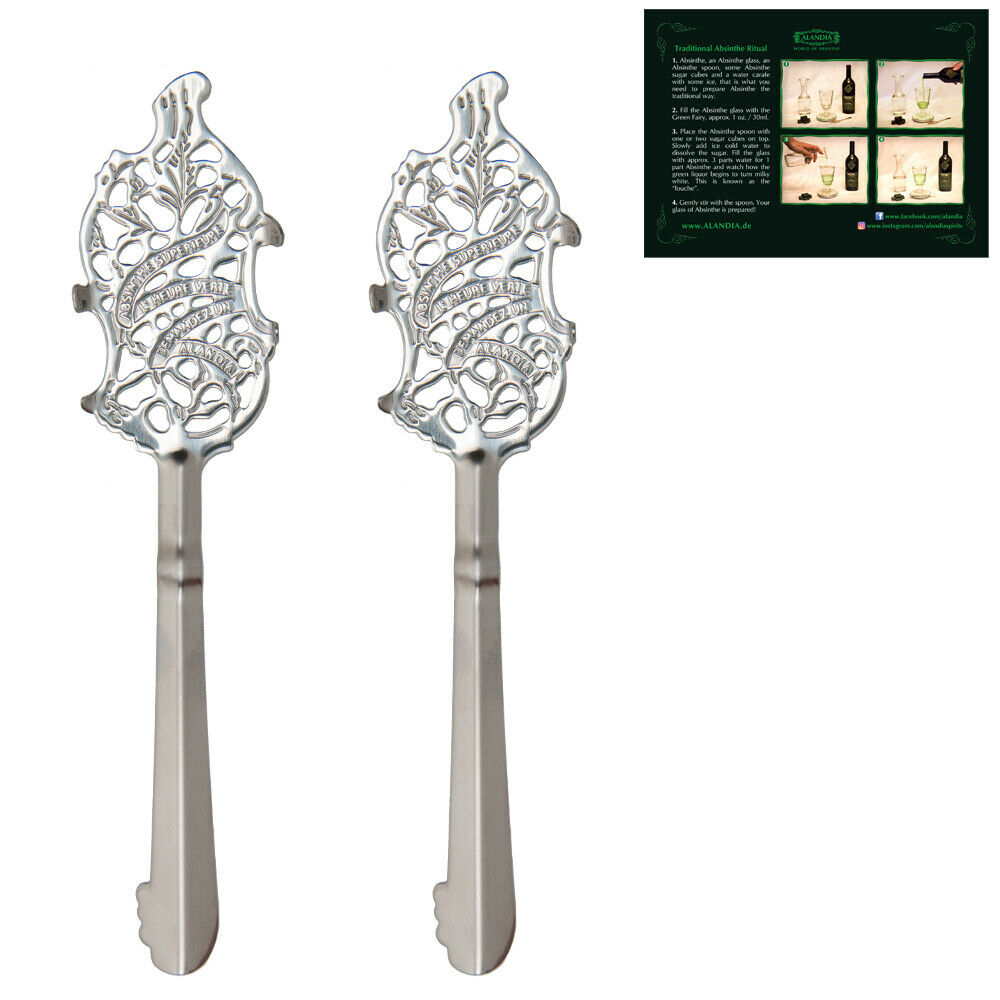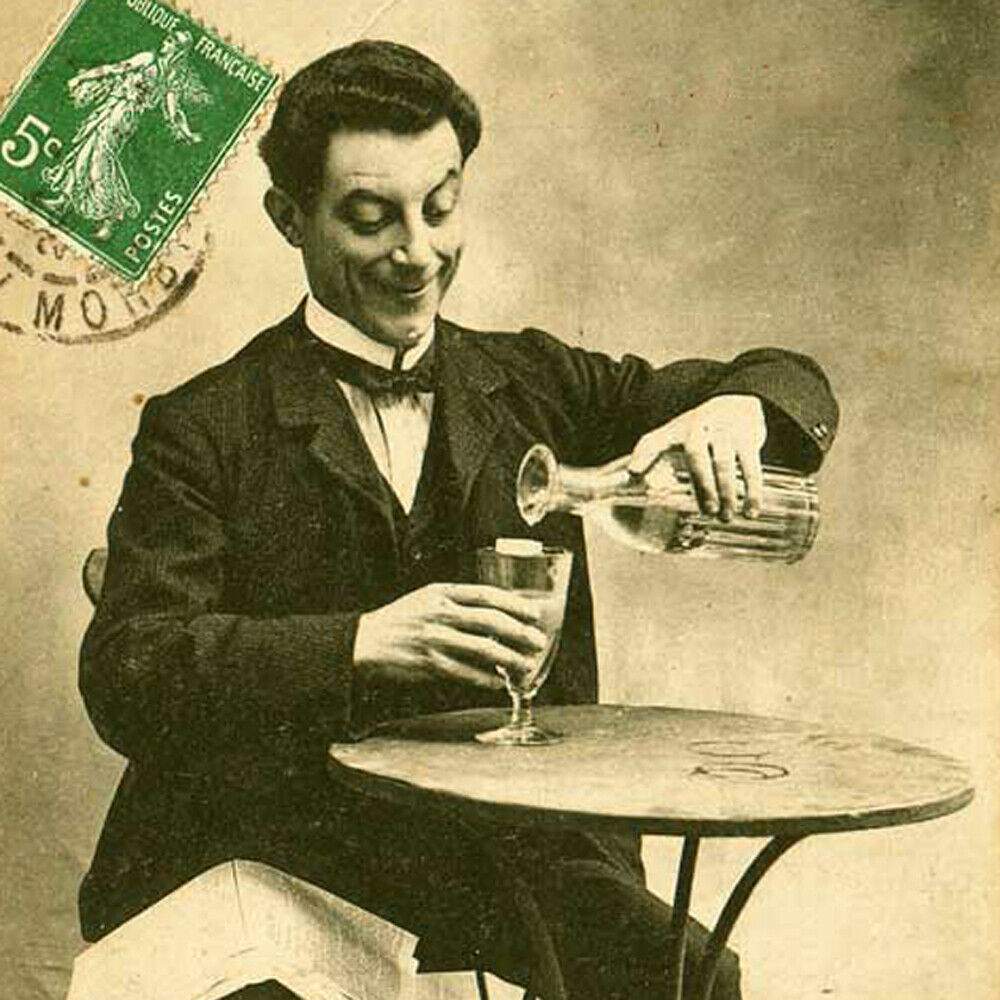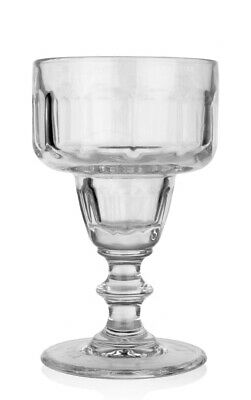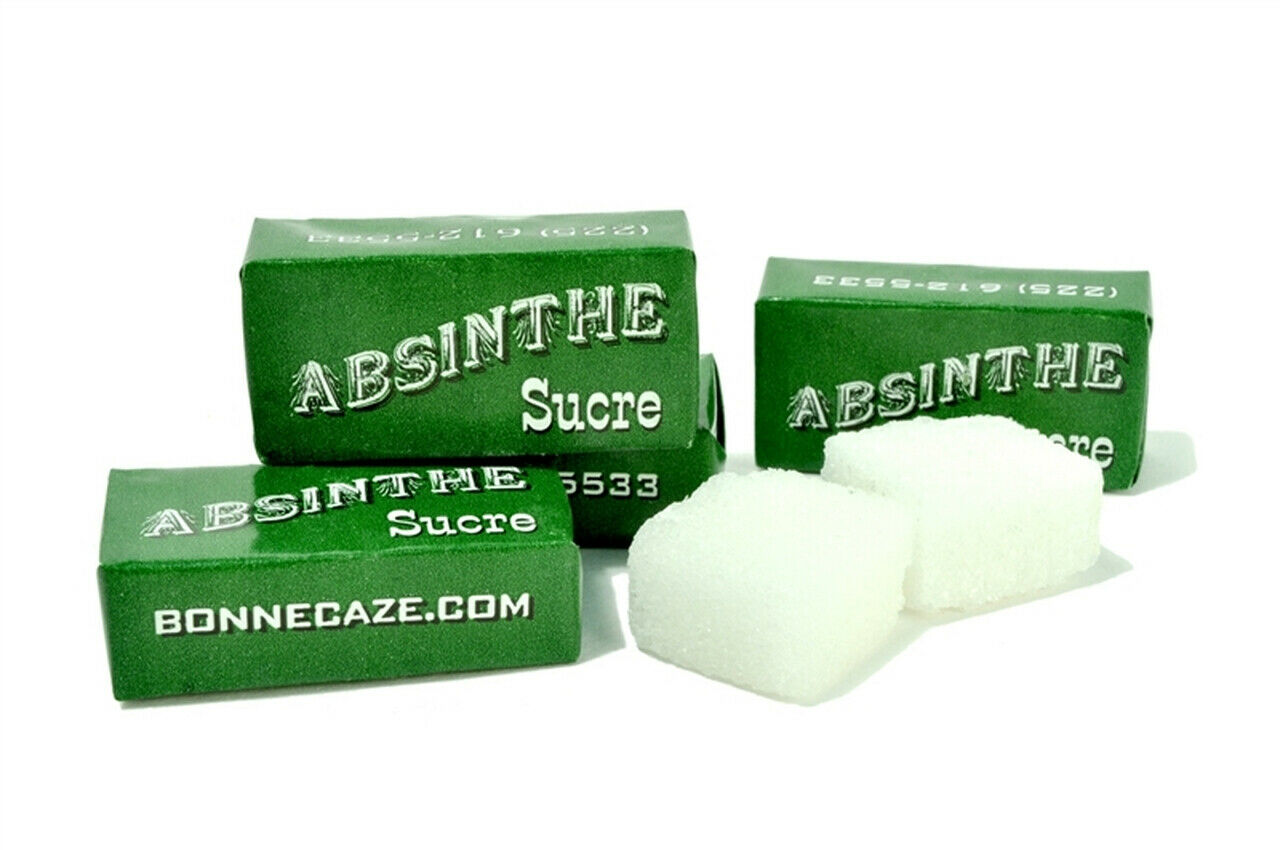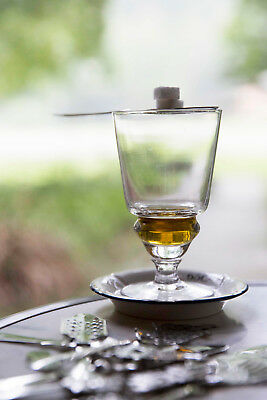-40%
Premium Absinthe Spoon Spoons Set | High Quality | Stainless Steel | 1x Card
$ 18.42
- Description
- Size Guide
Description
If you are looking forhigh-quality and beautifully decorated Absinthe spoons
, the "Feuilles" spoons of this set (2 spoons included) are just the thing for you. They are made of
high quality
stainless steel
and are an authentic reproduction of a famous spoon from the time of the Belle Époque (end of the 19th century). The spoon surface is particularly original because it shows intertwined wormwood leaves (feuilles = French for leaves). In addition to their authenticity, the spoons are highly functional. The decorative cut-outs in the spoon surface are of such a size that the sugar can drip into the absinthe together with the water during the absinthe ritual (more information about the absinthe ritual can be found further down on the page). The sides of the spoon are slightly bent upwards so that the sugar cube has a stable position on the spoon. The curvature of the handle guarantees a firm fit on the rim of the Absinthe glass.
The front part of the spoon is decorated with intertwined
wormwood leaves
. The inscription "l'Heure Verte" refers to the "green hour". It is the moment on the day when absinthe (French spelling) was served in the cafes of Paris in the 19th century. The French writer Alfred Delvau notes 1862: Cross the Imperial on a summer's day in a bus of the Madelaine line towards the Bastille and you will see all of Paris sitting at the doors of the cafes drinking their absinthe. Walk the Faubourg along the bars, in the Latin Quarter, at L'Ecole Militaire - you will see workers, students, soldiers, employees, idlers and beggars, people with good and bad manners, all busy preparing and drinking their absinthe.
The weight of an Absinthe spoon "Feuilles" is 0.7 oz (18 gram). Therefore it lies
pleasantly heavy in the hand
. All in all, the
high-quality
stainless steel material (no cheap sheet metal, brass or aluminum), the authentic design and the precise workmanship distinguish these Absinthe spoons from simpler alternatives. If you are looking for particularly high-quality spoons for the preparation of absinthe, you should choose the ALANDIA Feuilles spoons.
Absinthe: Why was it banned?
At the time of the ban, the Green Fairy was considered a drink that made people go crazy and violent. A spectacular murder case in 1905 was decisive: Mr. Jean Lanfray, a Swiss farmer with an obvious alcohol problem, murdered his wife and children while intoxicated. Appalled by the brutality of the act, a trigger was quickly found: The devilish schnapps absinthe, for in addition to several glasses of wine and cognac, the farmer had drunk a glass of the high-proof spirit. The prohibitionists had found what they were looking for, and now they had a media-effective event that justified their interests in banning the drink. In their opinion, absinthe was poisonous, causes hallucinations and leads to a decline of morals and social order. The only help is a ban!
The murder case was a decisive point for the prohibition of absinthe, as it intensified the discussions about the drink, its ingredients and its effects. At first glance, the story seemed to show clearly what absinthe can do diabolical things. However, the farmer had already drunk a lot of (other) alcohol that evening before he finally added two glasses of absinthe. This fact, however, was concealed because the drink was already considered poisonous by many parts of society. The Green Fairy had to be used more and more as a scapegoat for all social problems. Last but not least, the wine industry advocated a ban, because absinthe producers were new competitors on the market, which could be easily removed by banning the drink.
So the question whether absinthe is poisonous or not has always been asked. Fact is, real absinthe is made from wormwood and wormwood contains the active ingredient thujone. Thujone can actually be poisonous. Nevertheless, thujone is only harmful to health in very high doses. Absinthe does not contain so much thujone that we have to worry about our health. This means that absinthe is not poisonous and has therefore been legalized again. It is important to mention here that absinthe did not contain thujone anymore in the past. Historical absinthes were analyzed and the amount of thujone was below the legal amount of today: 35 mg/liter.
Absinthe: How to drink it
First fill the absinthe glass with 0.7 oz (20 ml) of absinthe and then fill the absinthe spoon with one or two sugar cubes. Then pour cold water from an absinthe carafe (or absinthe fountain) over the sugar. Now the Absinthe starts to cloud over, the "Louche" starts. The Absinthe is ready when Absinthe and water are completely mixed. We recommend a mixing ratio of one part Absinthe to three parts water. In the times of the Belle Époque people used to meet at the so-called "Heure Verte", the green hour to drink their glass of Absinthe. T
he Absinthe spoon set comes with a free drinking instruction card
.
